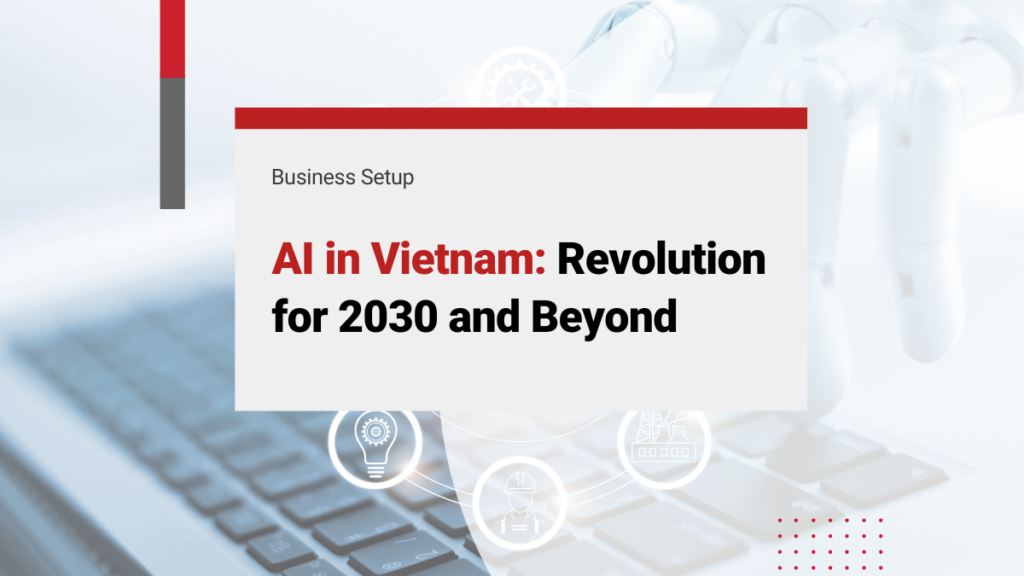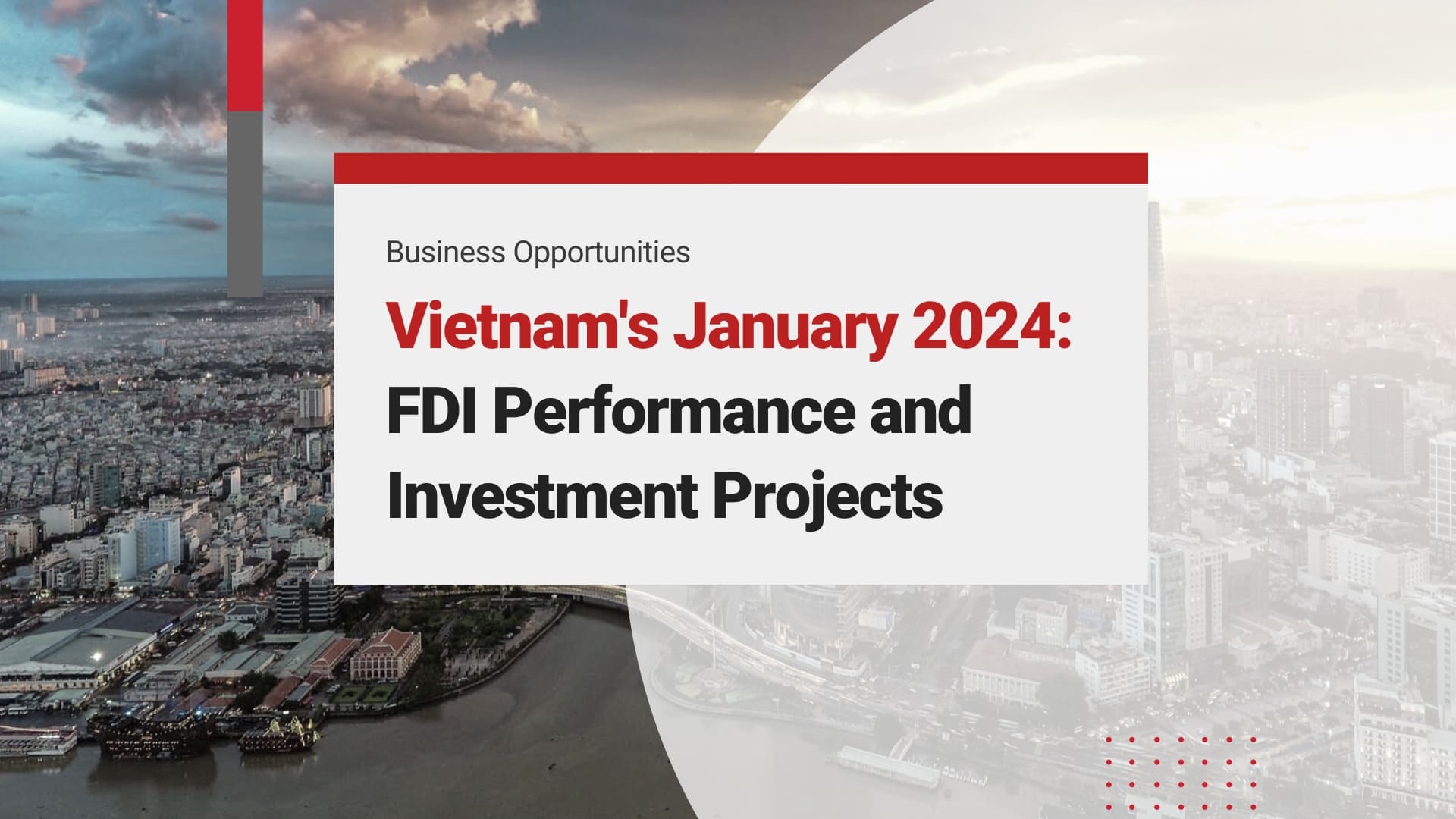Artificial Intelligence (AI) is reshaping global economies, and Vietnam is sprinting to the forefront of this transformation. The economic potential of AI in Vietnam is staggering, with possible contributions reaching 1,890 trillion VND (approximately $79.3 billion USD) by 2030.
This momentum is not incidental. Over the past few years, the Vietnamese government has aggressively tried to become digital-first, issuing policies to nurture a thriving AI ecosystem. From talent development to legal frameworks and international partnerships, Vietnam is cooking up multiple strategies to become Southeast Asia’s AI powerhouse.
To bring this vision to life, there has been a sweeping set of initiatives that span from building infrastructure to attracting global giants and nurturing a local startup ecosystem. Let’s dive deeper into how AI in Vietnam is transforming ambition into action.

Vietnam’s Digital Technology Industry Law
A landmark in legal infrastructure
In 2025, Vietnam made history as the first country to pass a dedicated law for the digital technology industry. Adopted on June 14, 2025, the new Digital Technology Law will take effect on January 1, 2026, taking a forward-looking, risk-based approach to AI in Vietnam.
It classifies AI systems into high-risk and low-risk categories, with stricter rules and oversight for high-risk uses. On the other hand, AI-powered products must be clearly labeled to promote transparency and accountability.
Economic incentives to drive innovation
The DTI Law introduces financial, infrastructural, and policy incentives to attract investment in strategic sectors like AI, semiconductors, and data centers – key drivers of AI in Vietnam. For projects with capital exceeding 6 trillion VND, the law offers a 5% corporate tax rate for 37 years, a six-year tax exemption, and a 50% tax reduction for the following 13 years. These projects also benefit from up to 22 years of land rent exemption and a 75% reduction thereafter.
R&D is strongly encouraged through a 200% tax deduction on qualifying expenses. To support talent development, high-skilled digital professionals enjoy a five-year personal income tax exemption and streamlined visa incentives.
The DTI Law is also designed to anchor long-term investment and strengthen Vietnam’s technological capabilities and workforce, positioning the country as a competitive hub in the global digital economy.
Investing in an AI ecosystem
Growing a skilled digital workforce
Vietnam’s ambition to dominate the AI landscape depends heavily on one crucial ingredient: talent. Acknowledging this, the government has committed to training a world-class AI workforce to bolster AI in Vietnam:
- 7,000 AI professionals to be trained to international standards.
- At least 5,000 engineers with deep AI expertise are to serve the growing semiconductor and high-tech sectors.
- The government is establishing a national AI Training, Research, and Application Center under the Ministry of Planning and Investment, aimed at supporting startups and incubating innovation.
These programs aren’t limited to traditional academic pathways. The government is pushing for digital education expansion, corporate retraining, and online learning platforms to democratize access to AI skills. Scholarships, preferential loans, and modern digital curricula further support this drive.
A Thriving Startup Scene
Vietnam’s tech startup ecosystem has witnessed phenomenal growth, making it a vital part of AI in Vietnam. With over 4,000 startups, including three unicorns, the country is quickly emerging as one of the most dynamic innovation hubs in ASEAN.
According to Thye Yeow Bok, Director at Google Asia-Pacific, Vietnam is not just catching up, but leading regional innovation. The country’s digital economy is expected to hit $45 billion by 2025, powered by fintech, e-commerce, and AI.
The DTI Law further empowers startups by:
- Providing direct funding for prototype development and international trade promotion.
- Offering exemptions from certain regulations for small and micro-enterprises, especially under the new Personal Data Protection (PDP) Law.
- Creating regulatory sandboxes for controlled testing of experimental AI technologies.
Attracting Global Tech Giants
Over the past 5 years, Vietnam has attracted major international technology corporations due to its strategic location and abundant resources in ASEAN, further advancing AI in Vietnam.
- Qualcomm established an R&D center in Hanoi in 2020, focusing on 5G and IoT research.
- Samsung, already operating a large R&D center in Hanoi, with a total investment of US$220 million, put another $1.8 billion into its LED display production plant in Bac Ninh.
- NVIDIA recently invested in an AI ecosystem-focused R&D center, marking one of the most significant AI investments in Vietnam.
- In 2024, SpaceX announced a $1.5 billion investment to expand its satellite internet services in Vietnam.
- Alibaba entered the Vietnamese market with plans to build a major data center.
- Google officially established Google Vietnam, reinforcing its direct presence in the country’s fast-growing digital economy.
These developments position Vietnam as a leading hub for AI research and innovation in the region.
Ethical AI and data protection
The Data Protection Law – a regional benchmark
With technological acceleration comes the risk of misuse, especially regarding personal data. Vietnam took a critical step in addressing this in June 2025, when the National Assembly passed the Personal Data Protection (PDP) Law, superseding the earlier 2023 decree. This law is crucial for the responsible development of AI in Vietnam.
It establishes a new gold standard for data protection within the region, setting forth comprehensive measures that significantly elevate the safeguards around personal information. One of its most important features is the requirement for strict consent-based data handling practices.
Organizations must obtain clear, informed consent from individuals before collecting or processing their data, thereby ensuring that users retain meaningful control over their personal information.
Recognizing the different capacities of smaller businesses, the law includes transitional arrangements to ease their path toward compliance:
- Startups and small- to medium-sized enterprises (SMEs) are granted a grace period of up to five years before they must fully comply with all provisions.
- Microenterprises and household businesses are fully exempt from the law’s requirements, acknowledging their limited resources and data-handling scale.
Read Related: Insights into Vietnam’s Personal Data Protection Decree
Ethical AI guidelines
In addition to data protection, the DTI Law embeds ethical AI development as a core priority for AI in Vietnam. It mandates transparency, fairness, safety, and non-discrimination in AI use. All AI systems are classified by risk level, and each classification has specific monitoring and oversight requirements. This approach ensures that Vietnam’s AI revolution doesn’t come at the cost of social or ethical integrity.
Overall, the Personal Data Protection (PDP) Law seeks to strike a careful balance between promoting innovation and safeguarding individual rights. By creating robust protections for users while allowing room for responsible technological advancement, the law aims to cultivate a digital ecosystem where trust, privacy, and progress can coexist and thrive.
Infrastructure and ecosystem development
Building the Foundations of a Digital Economy
No digital economy can flourish without robust infrastructure. Vietnam’s strategy includes:
- Investment in AI data centers and 5G infrastructure to support AI in Vietnam.
- Designation of concentrated digital technology zones.
- Support for environmentally friendly and recyclable digital products.
- State-backed financial support for infrastructure projects involving factories, technical equipment, and logistics.
By promoting collaboration between large corporations, startups, and support industries, the country aims to build a self-sustaining digital ecosystem with 150,000 digital technology enterprises by 2035.
A vision toward 2030 and beyond
Vietnam’s digital journey has gone past catching up with global peers and leapfrogging into a leadership role in AI and digital technologies.
Backed by a visionary legal framework, multi-billion-dollar FDI, a surging startup scene, and committed talent development, AI in Vietnam is poised for remarkable growth.
In many ways, the country is at an inflection point. The decisions made today about how AI is regulated, protected, and nurtured will define Vietnam’s trajectory in the global digital economy for decades to come.
How InCorp Vietnam can help
Vietnam’s story is no longer one of potential, but of momentum. With robust policies, international trust, a young digital-savvy population, and a clear roadmap, the country is poised to become the AI frontier of Southeast Asia.
InCorp Vietnam offers the expertise and on-the-ground support needed to navigate this fast-evolving digital landscape. Take advantage of local regulatory insight to align with Vietnam’s evolving digital and AI frameworks, seek business setup support to launch quickly and compliantly in a dynamic tech market, and find strategic guidance to tap into government incentives and FDI opportunities in the digital sector.
Learn the Right Setup for Business
Expansion in the Vietnam
Frequently Asked Questions
How big is the AI market in Vietnam?
- As of 2023, Vietnam's AI market is estimated to be valued at over USD 400 million, with strong annual growth driven by government initiatives and digital transformation across sectors. The Vietnamese government has a national strategy to become a regional AI hub by 2030, promoting investment in AI research, education, and technology infrastructure.
How is AI used in Vietnam?
- AI is used in Vietnam across various sectors including finance, healthcare, agriculture, and manufacturing to improve efficiency and decision-making. The government supports AI development through national strategies, and Vietnamese startups and tech companies are adopting AI for applications such as facial recognition, smart city infrastructure, and language processing. Major cities like Hanoi and Ho Chi Minh City are becoming hubs for AI research and development.
What is the national AI strategy of Vietnam?
- Vietnam's national AI strategy, approved in 2021, aims to make the country a regional leader in AI by 2030. The strategy focuses on developing AI research, training human resources, building data infrastructure, and encouraging AI adoption across key sectors such as healthcare, education, and agriculture. The government also supports partnerships between public and private sectors to boost innovation and investment in AI.






